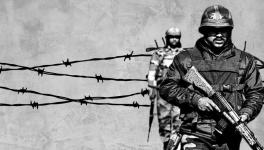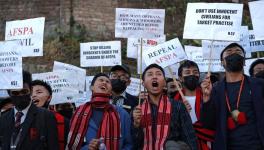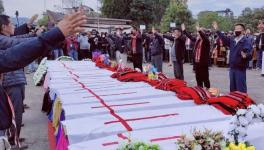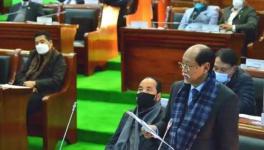The Limits Of ‘Killing In Good Faith’
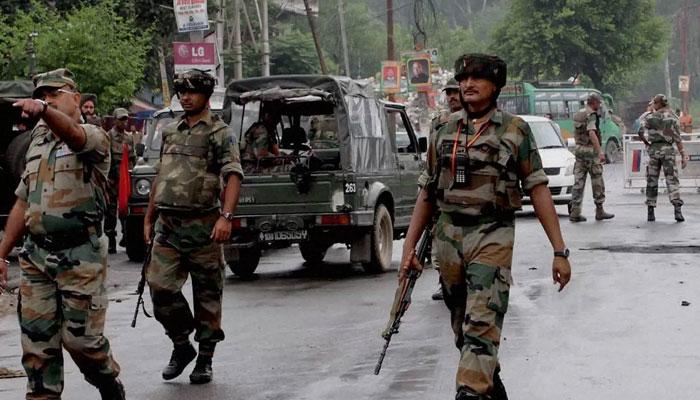
Armed Forces (Special Powers) Acts (AFSPA)
Nearly 400 more army personnel have added to the already pending petitions before the Supreme Court concerning the Armed Forces (Special Powers) Acts (AFSPA). The first petition was filed by Lieutenant Colonel Karamveer Singh in favour of his son, Major Aditya Kumar, who was named in a First Information Report (FIR) by the Jammu and Kashmir police following the Shopian firing. The second petition was moved by around 356 army personnel concerning the court directed Central Bureau of Investigation (CBI) chargesheets in the Manipur fake encounter cases. The most recent petition also concerns the CBI investigation.
Also read: Sanction, Prosecution, AFSPA and Victims
The people who have moved this petition belong to the 26 battalions of the Mechanised Infantry Regiment. This is a strange situation as mechanised units are not deployed in counter-insurgency operations, though they may be deputed from time to time in the Assam Rifles or the Rashtriya Rifles. Further, one common thread in all the petitions filed before the Supreme Court is that the army officers have stated that all their actions have been taken in 'good faith'. The legal definition of good faith varies, but its main feature is 'the absence of malice'. Thus, even if an act may have negative consequences, it has been done in good faith if the person doing the act did not have the intention to cause unnecessary harm.
Also read: Shopian Killings: Can We Believe the Army Narrative?
In the case of the most recent petition, the petitioners are serving under an officer who has been named in the CBI's FIR, Colonel Vijay Singh Balhara, now in charge of the Mechanised Infantry Regiment. In 2009, at the time when the act was committed, Colonel Balhara was a Major deputed to the 21 Assam Rifles in Manipur. The deceased victim in this case was 12-year old Mohammed Azad Khan. The Special Investigation Team (SIT) headed by Justice (Retd.) Santosh Hegde found glaring loopholes in Colonel Balhara's account.
The Colonel claimed that on March 4, 2009, an encounter took place for four to five minutes in which an insurgent was killed. The family of the deceased victim testified that they were locked inside the house by the 21 Assam Rifles and Manipur Police, and could see the 12 year-old boy being beaten and then shot.
Another interesting aspect concerning these developments is that the Chief of Army Staff (CoAS) General Bipin Rawat is most unamused with the petitions. Not that he is opposed to AFSPA, but instead is worried that these officers may lose their cases and put the entire army in jeopardy. However, another petition that he may have forgotten was filed in the High Court of Manipur by the wife of Lieutenant Colonel Dharamvir Singh seeking a writ of habeas corpus.
Also Read: 30 Years Worth of Violations in a 49 Page Report
On July 1, Lieutenant Colonel Singh was taken into custody by the personnel of 3-CISU. The unit later refuted allegations that they had arrested him and instead portrayed it as escorting him to his actual posting. According to his affidavit and other documents submitted to the court, it transpired that he was actively pursuing disciplinary action against members of the unit for extrajudicial killings.
The question that arises is, why file petitions when there is ample evidence of the absence of good faith, particularly in the cases where petitions have been filed? The only reasonable explanation is that the officers filing the petitions are worried. The Supreme Court has not adequately dealt with AFSPA since Naga People's Movement for Human Rights v. Union of India in which the Court rather than striking down or reading down AFSPA, issued guidelines to the forces. These guidelines may not always have been followed, hence the Extra Judicial Execution Victim Families Association (EEVFAM) petition in 2012 where over 1,500 cases of fake encounters were alleged.
Also Read: Sanction Without Investigation? Centre’s Move Poses Threat to Democracy
On the one hand, the armed forces are meant to be under civilian control. If they had been deployed, where were the mechanisms for accountability? The blame in this case does not lie with the armed forces alone, it also lies with the sleeping civilian government that was meant to serve as a check on the abuse of power. The petitions filed by the armed forces are couched in a language alleging that all their actions were taken in good faith against 'anti-nationals'. Perhaps, a new petition could be filed against the civilian executive in the regions where AFSPA operates for not overseeing the actions of the armed personnel.
Get the latest reports & analysis with people's perspective on Protests, movements & deep analytical videos, discussions of the current affairs in your Telegram app. Subscribe to NewsClick's Telegram channel & get Real-Time updates on stories, as they get published on our website.









